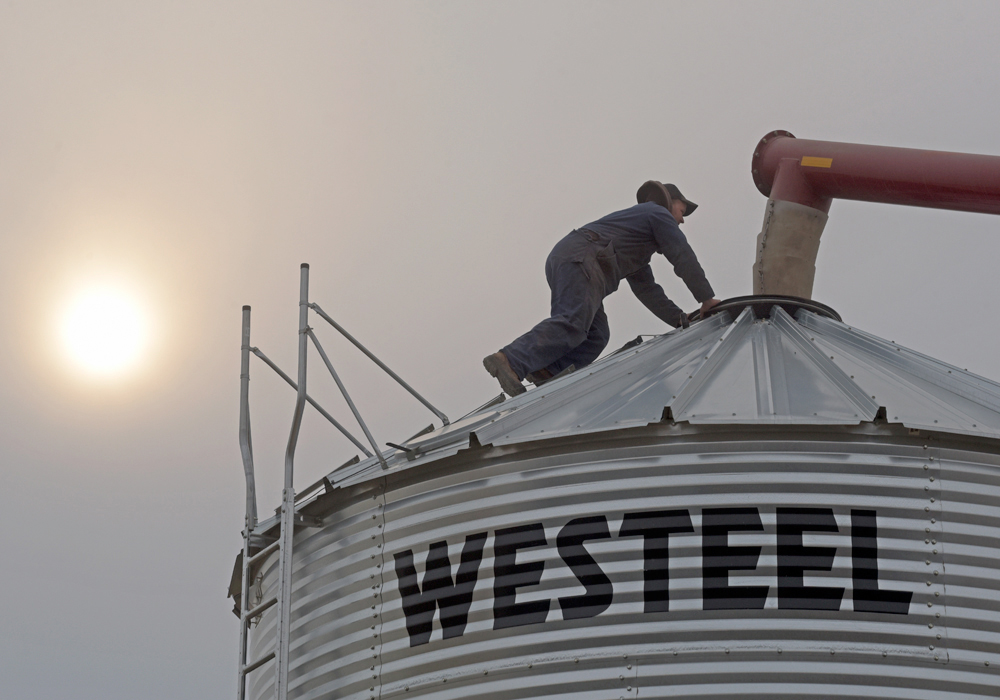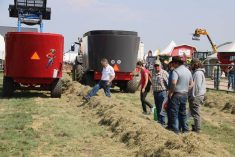The so-called harvest from hell in 2019 gave farmers a lot of reasons to take bin management seriously.
Then came 2021 and 2022, which have given farmers a lot more reasons, albeit from a different angle.
“It’s almost like an insurance policy,” said Warren Feist, director of market development for IntraGrain Technologies, in an interview at the Ag In Motion outdoor farm show held July 19-21 near Saskatoon.
“You get insurance on your tractors and your crop and everything like that. (Traditionally) the mentality was that once it’s in the bin it’s safe. That mentality is starting to change a lot.”
Read Also

Trump’s tariffs take their toll on U.S. producers
U.S. farmers say Trump’s tariffs have been devastating for growers in that country.
In 2019, farmers struggled to protect too wet and messy grain from degradation after a brutal harvest left many facing tight margins and losses as low yields met weak prices. A winter of stored-grain management ensued, with farmers drying grain, aerating grain, moving grain and anxiously monitoring grain until it could be sold.
In 2022, farmers are growing a crop in which they have invested more than ever before, with high fertilizer, fuel, seed and other costs pushing the cost-of-production much higher than just three years go.
Farmers could reap high crop prices this fall and winter, especially if they priced much in the spring and early summer, but those prices won’t mean much if the harvested crop spoils in the bin.
Some farmers could fall into problems with contracts if they lose quality or quantity in the bin.
These worries have pushed up sales of grain dryers, aeration systems and monitoring systems despite narrow margins for many farmers who haven’t managed to produce big crops.
“The protection of that grain in the bin is really top of mind,” said Feist.
Combined with handheld technology, bin monitoring is offering farmers a way to stay relaxed even while they’re away relaxing.
“We have lots of customers who do it because they take winter holidays,” said Feist.
“They want an eye on that grain at all times.”
















